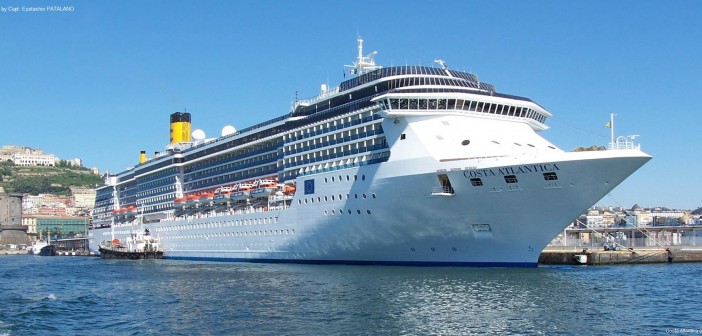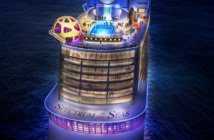Italian line Costa Cruises and China-based Astro Ocean are offering full refunds to passengers who have a fever or have been diagnosed with the latest outbreak of coronavirus amidst growing concern over the infection in China.
Norwegian Cruise Line has also introduced “non-touch temperature screenings for all passengers embarking from Chinese ports. Guest who register a body temperature screening of 100.4 degrees Fahrenheit or 38 degrees Celsius or higher will not be allowed to board and will be directed to seek local medical treatment. In addition, guests travelling from Wuhan, China or who have been in the city in the last 30 days will be denied boarding,” said a NCL spokesperson.
Royal Caribbean Cruises Asia Pacific will also not permit passengers who visited Wuhan including those who are from the region to board their ships.
“We are closely monitoring regional developments and coordinating with health authorities to assess and enhance our safety protocols. As a precaution, guest who travelled through or are from the Wuhan region will not be permitted to board our ships.
“All other guests embarking in China will receive enhanced, secondary health screenings before embarkation. Additionally, we are increasing medical staff, providing medical consultations for our guests and consulting special, onboard sanitizations to ensure the health of our guests and crew during their voyage,” said a RCC spokesperson.
Princess Cruises in Asia said there are no plans to change their itineraries and if necessary, the line will introduce pre-boarding disease reporting, specific temperature and questionnaire screening for passengers arriving from affected areas.
“Although the risks to our guests, crew and business remain very low, Princess Cruises is closely monitoring the news about the new coronavirus.
“Our medical experts are coordinating closely with the US Centres for Disease Control and Prevention (CDC) and the World Health Organisation (WHO) to implement any recommended screening, prevention and control measures for our ships. This will include pre-boarding disease reporting, specific temperature and questionnaire screening for persons arriving from affected areas, disease screening for all cases of acute respiratory illness presenting to our medical centres and environmental disinfection of the ship,” said a spokesperson.
There have been 830 confirmed cases of the virus since the outbreak according with at least 25 people have died said the latest report from the National Health Commission. The virus originated in the central city of Wuhan in Hubei province and has spread to other major Chinese cities including Beijing and Shanghai.
The US has confirmed its first case of the virus from a man who returned home to Seattle after travelling to Wuhan. Two cases have been diagnosed in Thailand, two in Hong Kong, two in Japan, two in South Korea, two in Vietnam, one in Singapore and one in Taiwan according to latest reports.
Cruise Lines International Association (CLIA) said that cruise lines are in the better position to minimise the risk of coronavirus infection because of their stringent health procedures.
“Cruise lines take precautions to screen passengers for illness prior to boarding and all ships are fitted with medical facilities and onboard medical personnel 24/7 to treat passengers swiftly in the event of illness and prevent further transmission.
“CLIA cruise lines maintain close contact with health professionals and regulators around the world and are one of the most well-equipped and experienced industries when it comes to managing and monitoring health conditions,” said a statement from CLIA.
Authorities in Australia, the UK, US, Singapore, Hong Kong, Taiwan and Japan have also stepped up screening of air travellers from Wuhan.
Wuhan has imposed a total travel ban with all planes, trains and local public transportation suspended. The lockdown means locals are not allowed to leave the city and region. Four other Chinese cities including Huanggang, Xiantao, Ezhou and Chibi have also shut down railway stations and suspended long-distance buses and ferry services.
Major cruise lines are working closely with port and health authorities to strengthen passenger screening procedures.
In 2003, Asia Pacific was hit by the SARS (Severe Acute Respiratory Syndrome) epidemic when more than 8000 people were diagnosed with the virus in 37 countries around the region. The epidemic prompted many lines to divert their ships which caused major disruption in the tourism sector but China has since grown into a major cruise market




